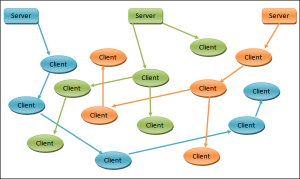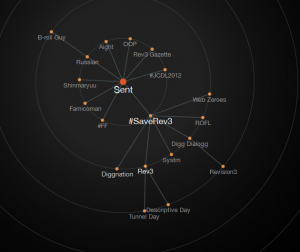Invitation Only – A Look at Online Betas
Online betas have always been a weird concept to me. Everyone gets hung up on the fact that they’re trying out the cool new thing, but few really think about exactly what they’ve got themselves involved with in the grand scheme of things.
I’ve been a member of a few online betas. Traditionally, those ones where you get invited by others who get invited by others, who- you get the idea. Initially, I can recall some of the bigger ones such as the Google Projects like Gmail, Google Voice, Google Wave, Google Plus, and Google Music (re-branded as Google Play). Other oldies like Pownce and Joost also stand out. In the last year, I’ve got into a few more such as Bottlenose, Spotify, Turntable.fm, Canv.as, and Letterboxd. So, let’s talk a bit about them.
Beta sites have both a cool factor, and a historic one. You have to admit, it can be awesome to be part of a new up and coming internet haven. You get in before all of your friends, you hand out invites as soon as you get them, and feel like a part of the action when really you’re just cementing the site. Some of these services actually turn out to be pretty cool. For example Pownce, comparable to Twitter (or more a Twitter on steroids), was a neat concept wherein you and your friends could share messages, files, and events online. Google services, specifically Wave with its far-out concept, have always been focused at changing the way you interact online. Joost was interesting in that it was one of the first services to use P2P technology to stream videos, doing so fairly well.

Joost’s use of P2PTV Technology.
So we have these works of technology thrown up for a handful (relatively) of people to see, and share with others in a semi-exclusive fashion. These sites can often be gimmicky, but there are also some great unique ideas here. Often, they don’t take off. For every successful project like Gmail, I can think of a half dozen that lasted a few years and disappeared to the point where you’d be lucky enough to find someone who remembers any of them. If in five years I bring up how I was an early invitee to Google Wave, someone will probably accuse me of making the name “Google Wave” up. This frightens me a bit.
Here is where the historic perspective comes in. There were all these interesting concepts out there that just up and folded for one reason or another. One reason sites run betas is to use you as a guinea pig. Don’t feel violated or anything, many bigger sites do the exact same thing and you’ve probably never even realized. You navigate from page to page and little metrics start being generated on some back end interface that report how long you stay on a page, what links you click, etc. “Beta” isn’t always a marketing word or tied to getting advanced access to a site. Yes, it can be both of those things, but it importantly represents the fact that you are in a testing ground and are undergoing the experimental procedures. A lot of people will offer feedback or outright complain about the service they are testing, and the company can either adapt or die. When they die, they’re gone. Most of these online niches are up for a few years, with the hype and buzz of their exclusivity, and end up vanishing overnight before ever hitting their full potential.
We can use this as a learning experience. I find some of the betas I’ve participated in recently are services I enjoy. Turntable.fm allows a bunch of people to come together in a virtual room and play music for each-other, taking the complexities out of online DJing and adding a rich social aspect. You can’t get the same feel from an Icecast server no matter how hard you try. Bottlenose tracks all of your social networking updates, generating statistics and even a “newspaper” from them. Letterboxd brings back the long lost Netflix friends feature in full force, so you can keep track of what your friends are watching and just how much they like it. What’s a better way to get mass movie recommendations?

My Bottlenose ‘Sonar’.
These services are fun, and I hope they stick around. Even if they don’t, they become bricks in this strange failed beta wall and are akin to those little toy fads most of us were suckered into as children. Some of the older concepts for these sites still pop up again here and there. Joost’s P2P streaming might have been a little advanced for 2007, but now there are dozens of P2P video streaming sites and applications that you can download and use. Of all the ideas for this websites, some are just duds from the start, but others are simply ahead of their time.
Don’t be surprised if your friend messages you at 2 in the morning with an invite to a site that feels an awful lot like one you were part of six years ago.
Though the sites may die, their ideas don’t. They’re just in the process of being recycled.